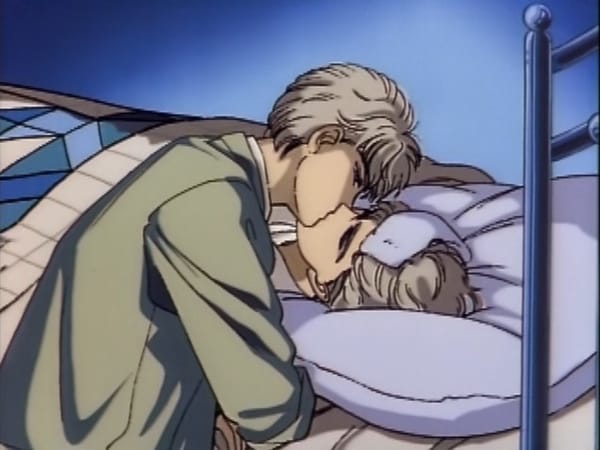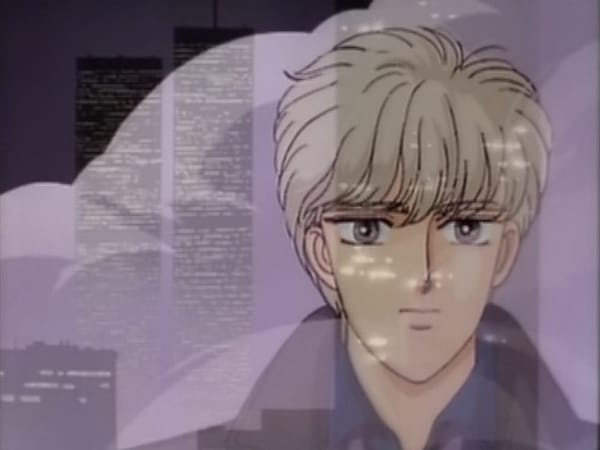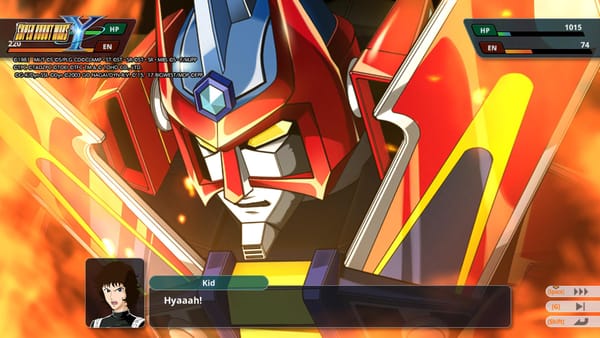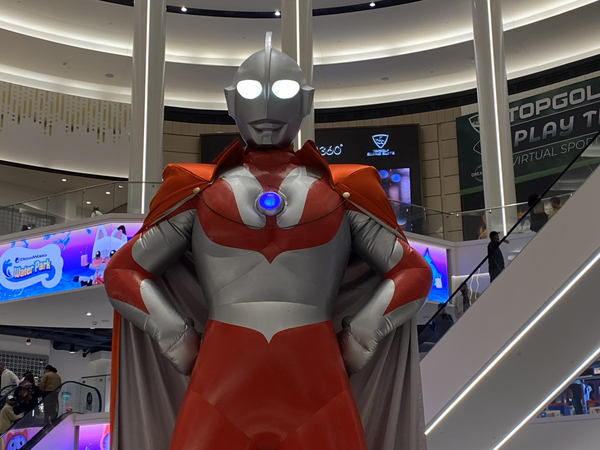Akiba Maid War commits to its joke all the way. No turning back. Ride or die. Moe moe kyun
A sitcom about yakuza maids takes its stupid seriously
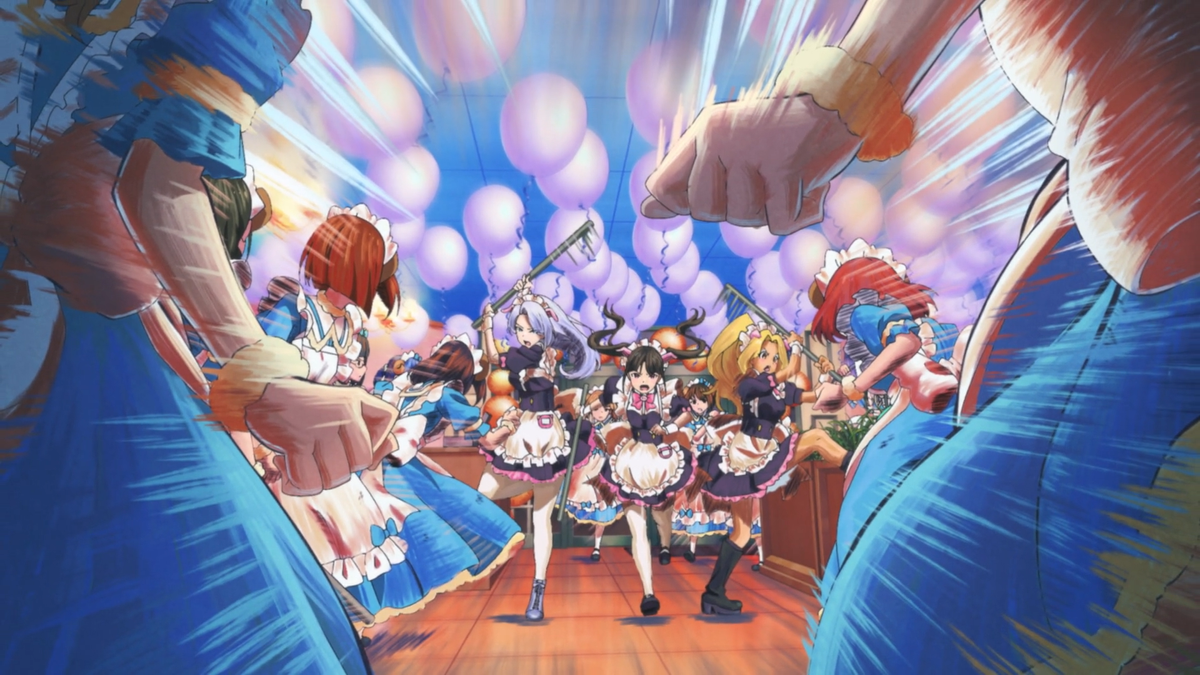
Akiba Maid War had my attention from the first trailer, which promised disaster girls behaving badly. From this trailer, I guessed that it was just going to be a particularly grimy and cynical workplace comedy about dirtbag maids kind of doing their best.
So of course, it was a huge surprise when I watched the first episode and found out it was a comedy about violent gang warfare.
I’m obviously not an expert on the subject, but I have heard before that around the millenium, when this series is set, the ownership of the maid cafes around Akihabara was often pretty shady. It’s not a shock to hear an entertainment industry was mobbed up in Japan, but this trivia— spoken out loud at the very end of the show— led the creators of Akiba Maid War into a very silly thought experiment.
This is a joke you really have to commit to, or it falls apart. Akiba Maid War is set in a world where it’s universally understood and accepted by everyone that maid cafes are mafia outposts.
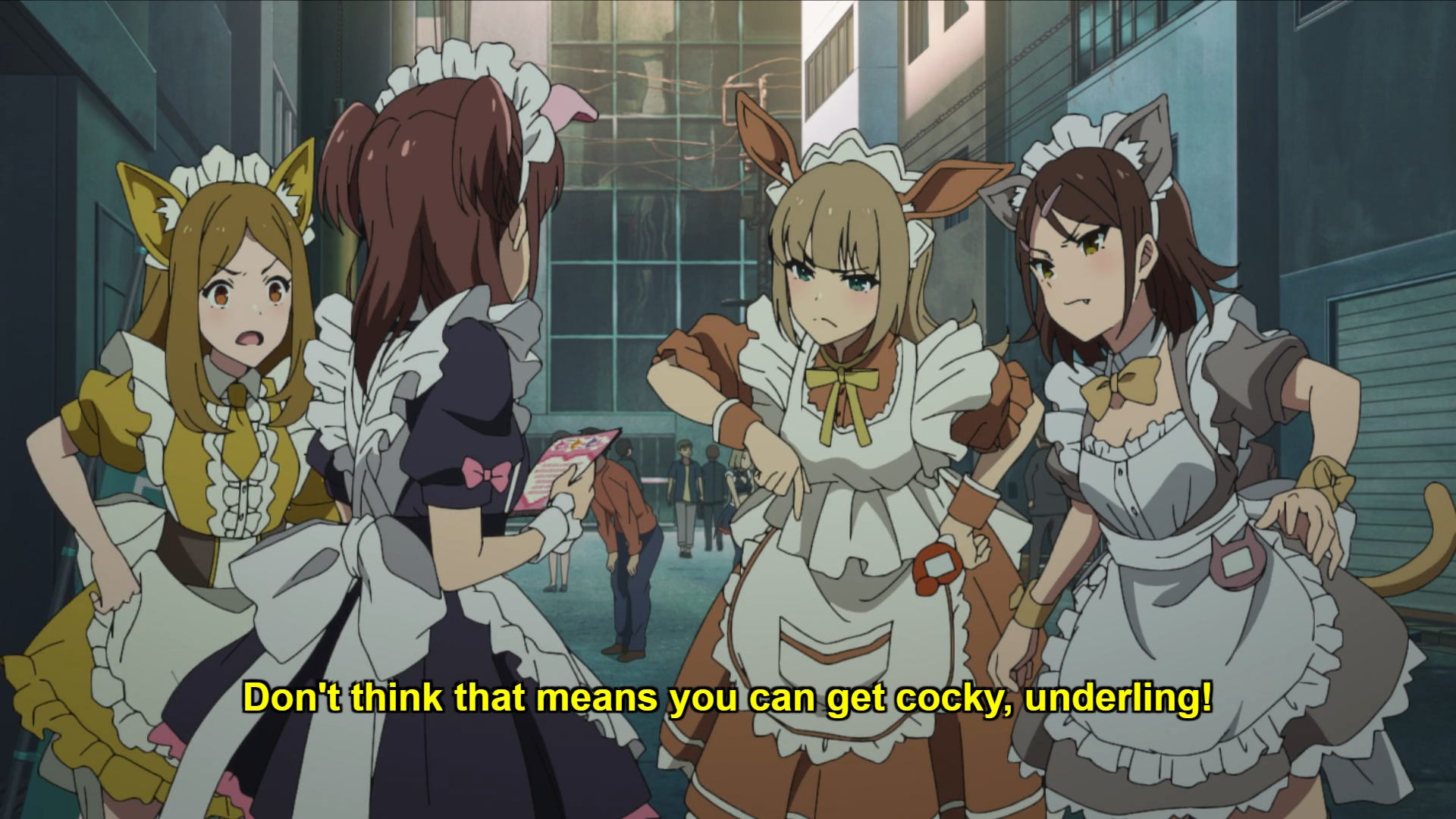
The girls who dress up like maids and sing and dance and serve nerds omelet rice double as foot soldiers in mafia turf wars. The bosses are maids, too, and they’re damn proud of it. The nerds still happily show up to the maid cafes, like the concert crowds from Metalocalypse, their fantasy love only somewhat sobered by the bloody reality.
I’ve never had a favorite maid die before, sobs one, as his friends look on sympathetically. They already have. It’s the way things are.
The only person who doesn’t know this is our innocent, bright-eyed heroine Nagomi, who moves into Akiba to become a maid and is immediately forced into working at Oinky Doink (Tontokoton), a pig-themed cafe which is the underdog dirtbag of the Akiba maid scene. All the other animal maids— the bears, the cows, and especially the lions— spit on them.
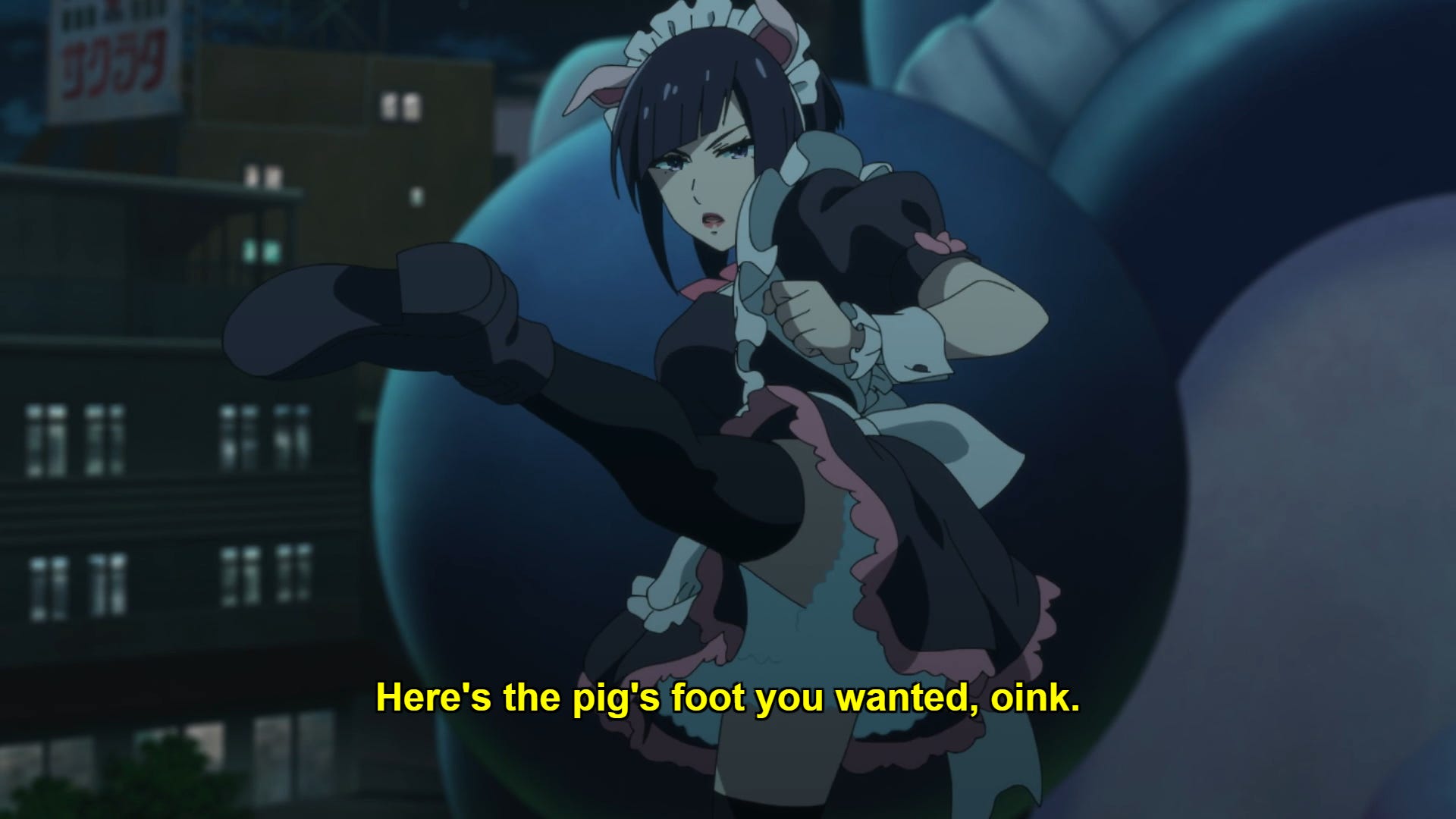
It’s clear from Tontokoton’s sleazy yet helpless manager that the place isn’t doing great, but the full picture doesn’t become clear until Nagomi’s co-worker— 36-year-old maid and Best Anime Girl Of The Year Ranko Mannen— escorts her into a rival alien-themed maid cafe to make a formal apology. Things go south, and Ranko starts shooting space invaders.
Akiba Maid War values this reveal so much that I almost feel bad for telling you that it happens. Ranko does not just slaughter a rival maid cafe; she does it with wotagei dance moves, handling guns like glow sticks. The sequence is incredible: a grotesque, blood-soaked moe-moe-kyun fever dream that ends in an Akiba street littered with a hundred dead maids.
And from that point, for Nagomi and for us watching, the cat is out of the bag. Unable to return home and scared of what would happen to her if she tried to escape, Nagomi starts living with the maids and doing her best every day to live the maid life she had imagined as she grows closer to her sisters in arms.
The aforementioned Yumechi (a cynical twintailed cutie-pie) and Shiipon (a frank gal in heavy makeup) are ordinary working girls who approach their violent lifestyle with a certain experienced, jaded matter-of-factness. That they’re typical well-trod anime types, and that all this is just work for them, grounds the absurdity of what they’re doing.
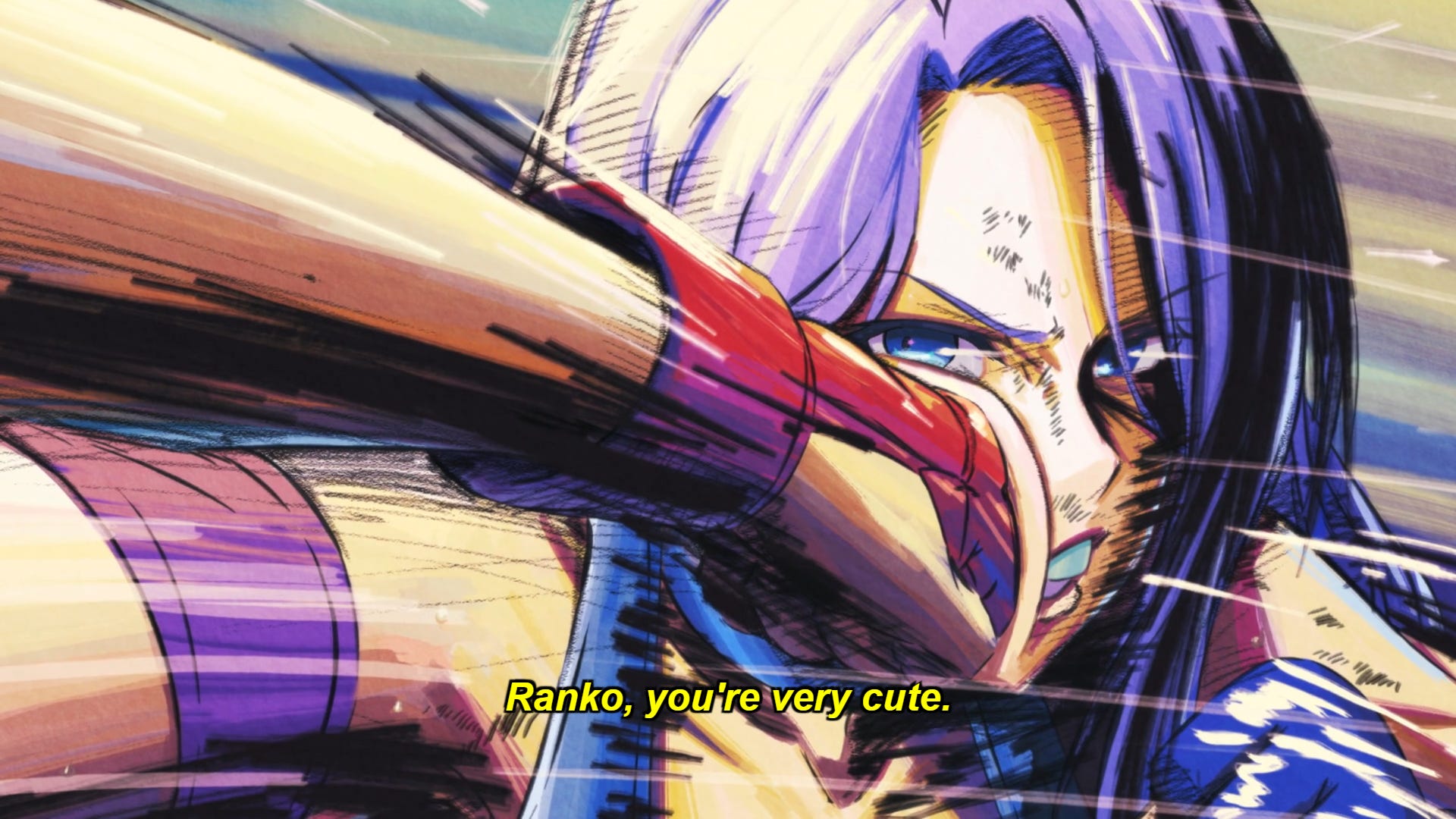
Novelty foreigner Zoya (authentically voiced by Russian voice actress and singer Jenya) never really gets the time her promising character deserves past a strong introduction in one of the best episodes of the series.
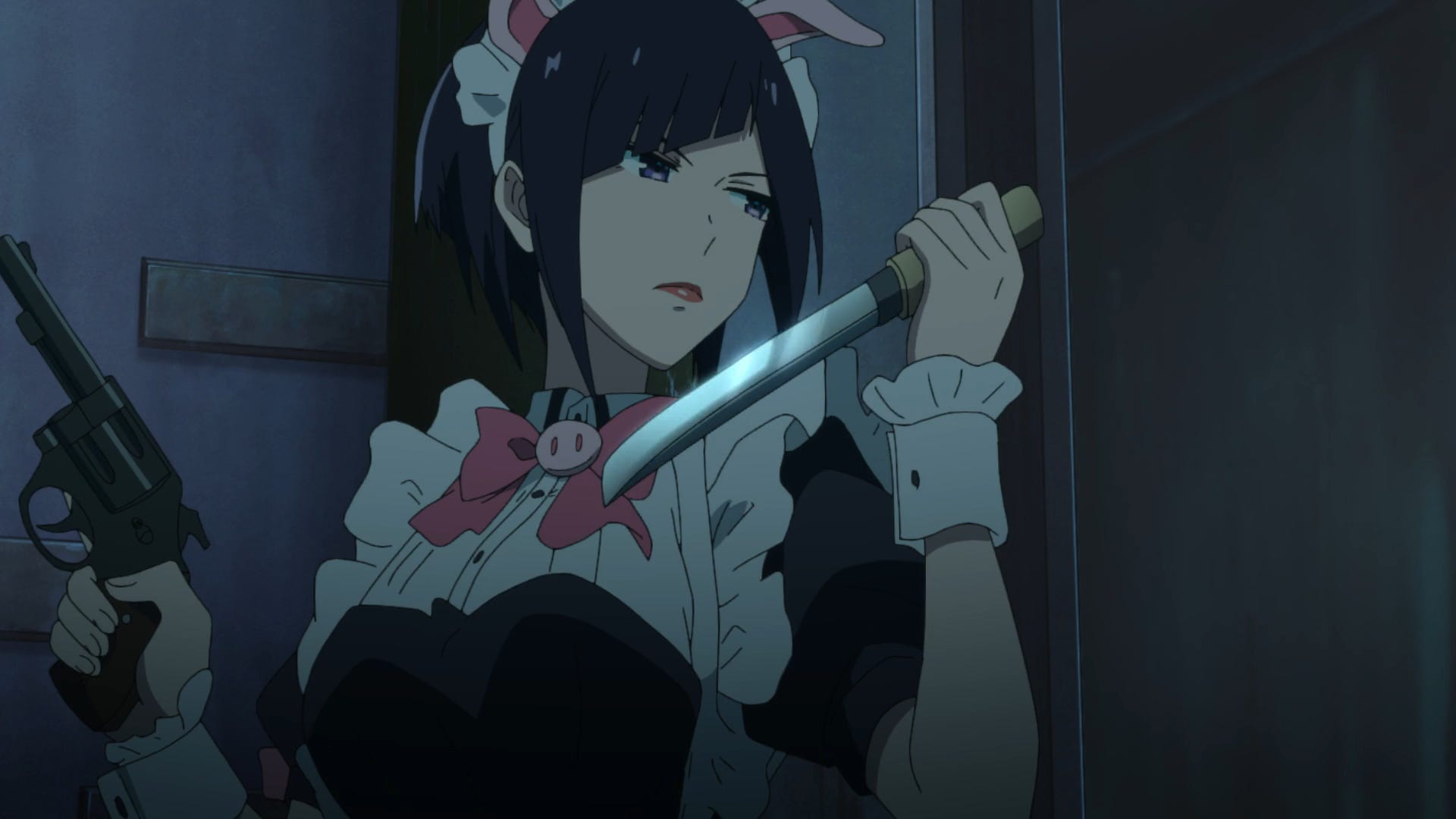
But the star supporting character and everybody’s clear favorite has got to be Ranko Mannen, a 36-year-old maid who’s spent 15 years in jail after taking the fall for a certain incident. Ranko is stone-faced and delivers her “moe moe kyun”s in full monotone; she is devoted to her cafe, awful at the maid stuff, and a pro at killing.
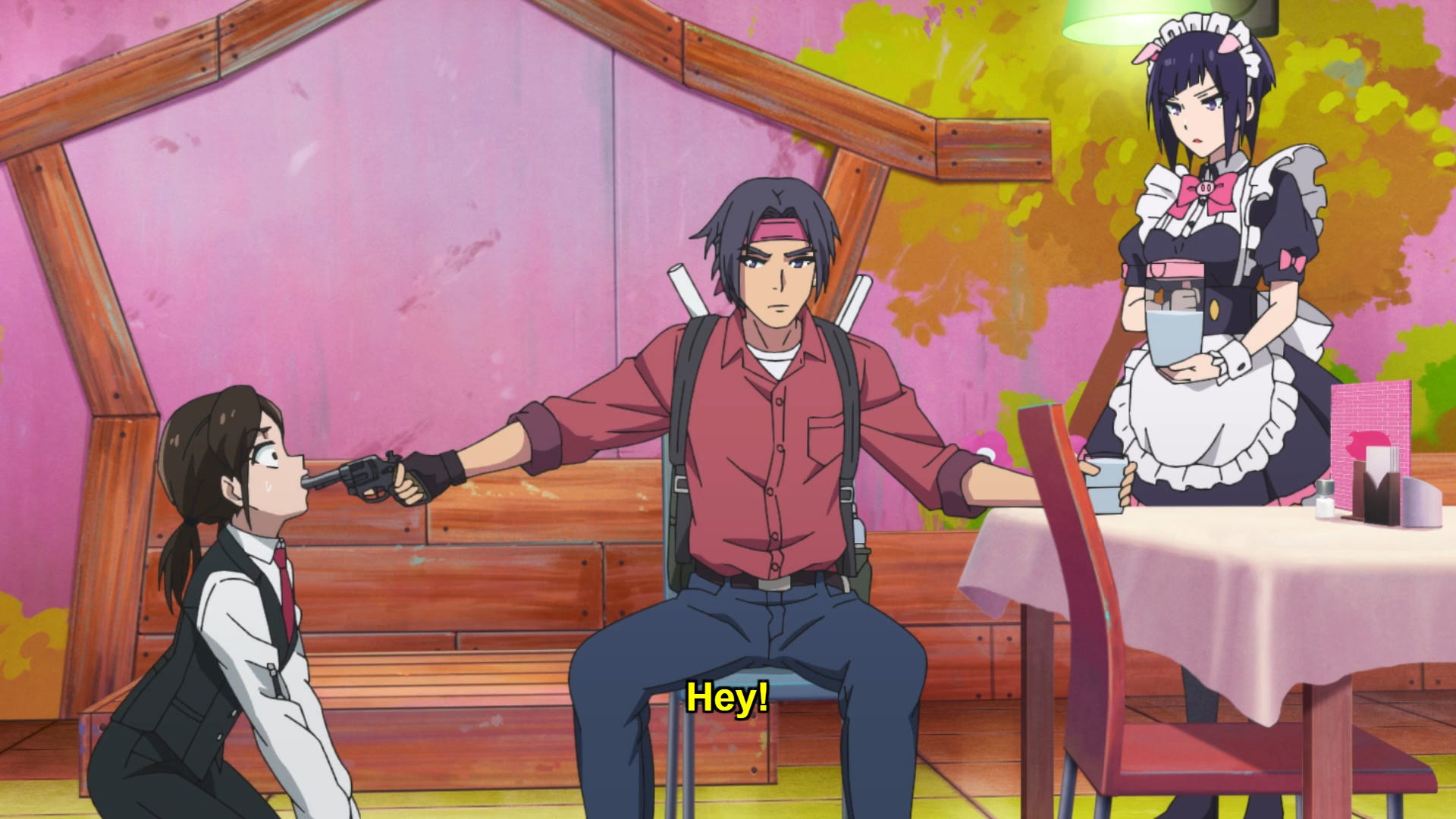
For most of its run, Akiba Maid War is a pitch-black situation comedy. Every week the girls and their never-named manager come up with some desperate, ill-advised plan to get rich quick and take their cafe out of the red: gambling at the maid casino, fighting at the underground maid MMA den. Of course there’s a maid version of every mafia racket.
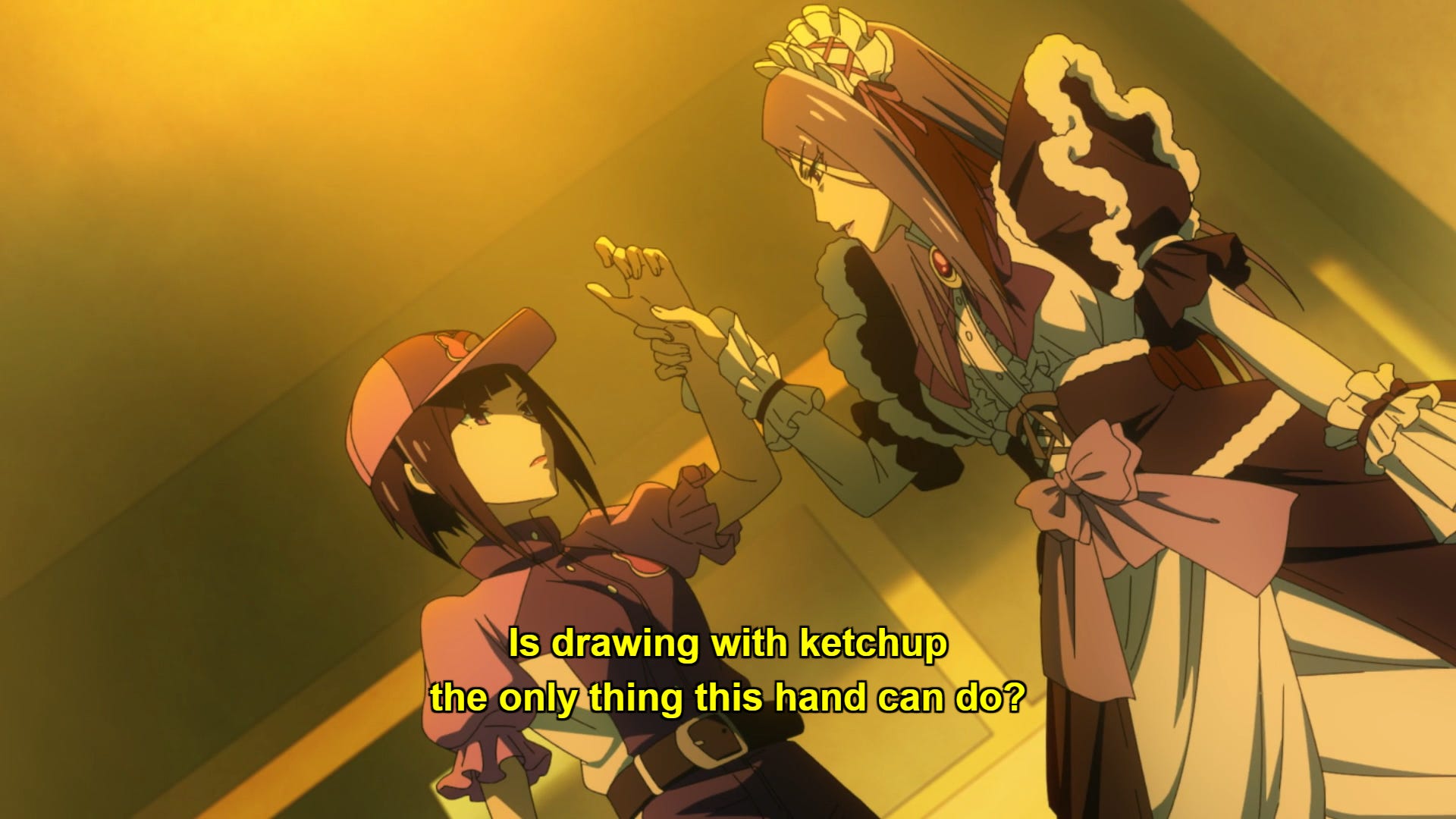
But in the background, the show starts to lean all the way into its premise. Mafia intrigue plays out: skirmishes between rival chains, in-fighting in the Oinky Doink’s parent, the Animal Land Group. Without losing its dark comic tone, Akiba Maid War’s last third takes a shot at actual crime drama. Real tragedies with lasting consequences befall the Oinky Doinks. And somehow, it works.
If Akiba Maid War hadn’t been brave enough to go all the way through on its premise— if the mob bosses had kind hearts deep down, or if some miracle saved the day— its final arc would have landed with a thud. But it never pulls a punch. It draws its weird criminal world from top to bottom, and it plays all the climactic drama straight, even when it involves people in panda suits. I can’t say a lot about this part of the show without giving it all away, other than to say I was regularly applauding my TV screen.
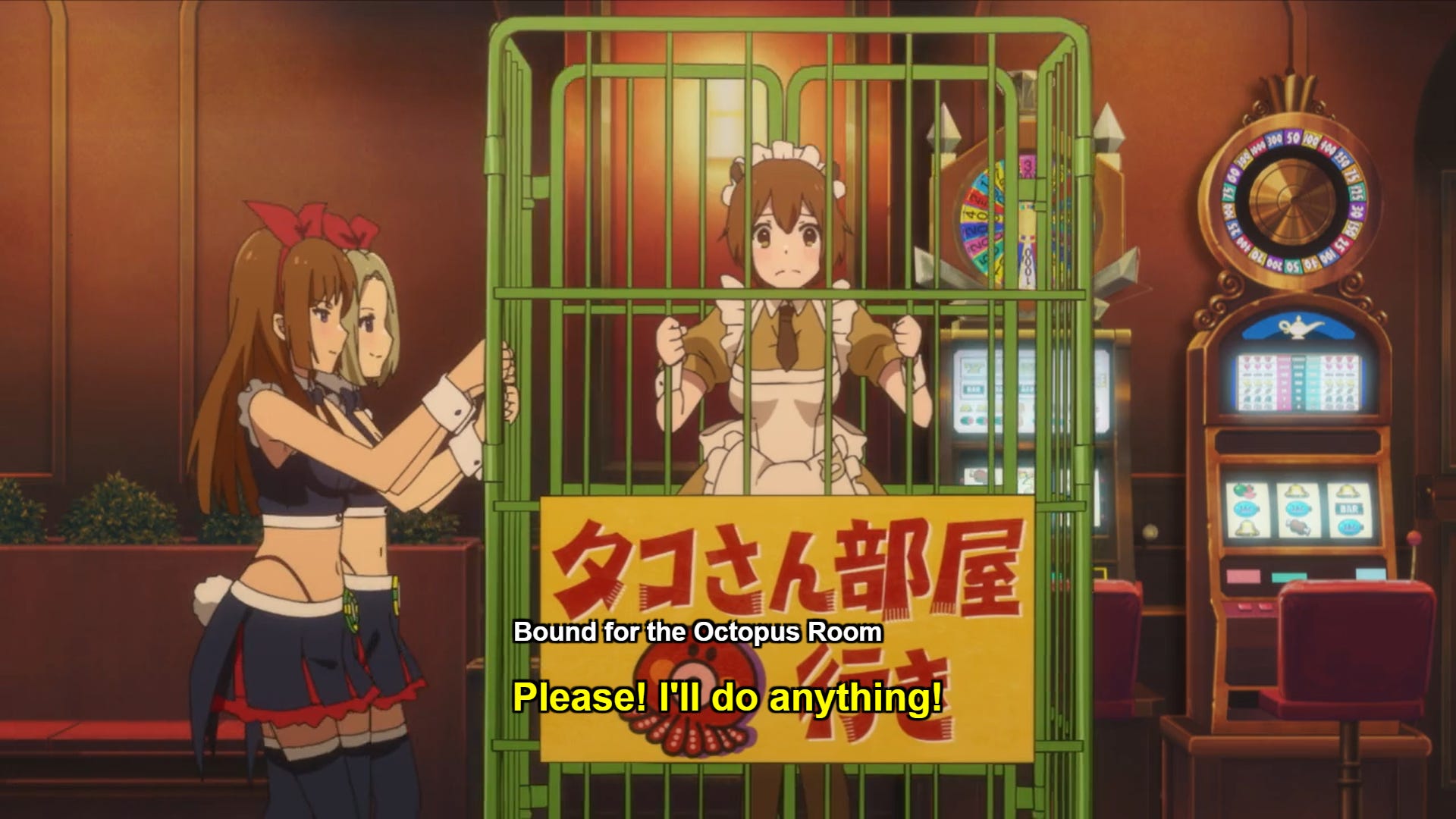
Every week— especially once things start going down in the last third— I wondered to myself if Akiba Maid War was going to fall apart under the weight of its own joke. It never did. God bless it, it goes all the way.
Akiba Maid War is streaming on Hidive in the US.
